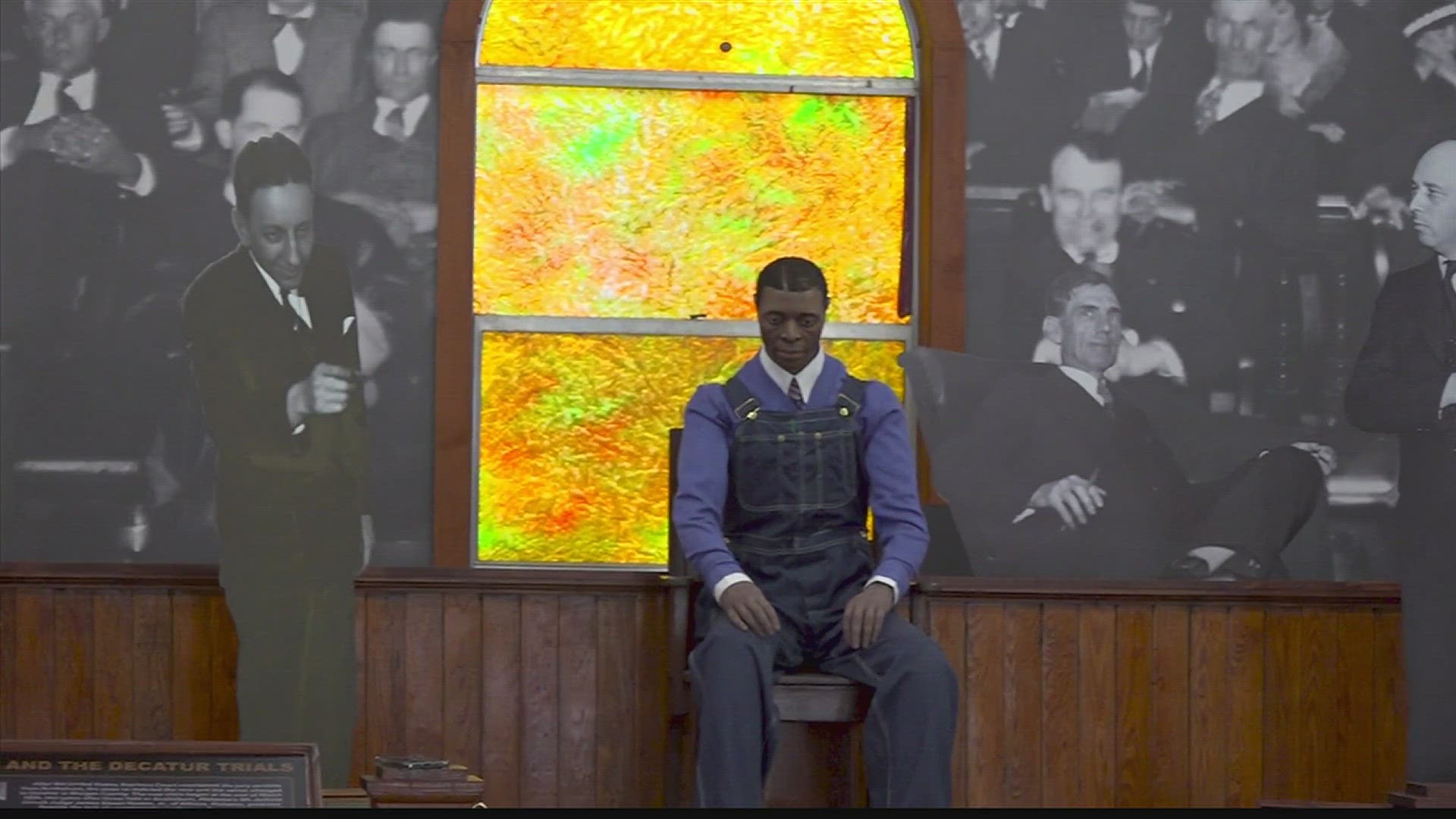SCOTTSBORO, Ala. — The Scottsboro Boys were nine Black teenagers falsely accused of raping two white women aboard a train near Scottsboro, Alabama, in 1931. The trials and repeated retrials of the Scottsboro Boys sparked a major uproar and produced two landmark U.S. Supreme Court verdicts, even as the defendants were forced to spend years battling the courts and enduring the harsh conditions of the Alabama prison system.
Fast forward 92 years later, the community of Scottsboro gathered at the newly remodeled Scottsboro Boys Museum to honor the legacy of these young men.
"This is kind of a jubilation, for people to recognize what happened and now we're moving forward," Clarence Norris Jr said. Norris is the son of Clarence Norris, one of the nine boys accused on March 25, 1931. "You go in a place, and you see pictures of your father that you probably never saw before. He's a child, and you know what he went through. For him to survive, for me to come from him is a victory because of all the things he went through."
Gov. Kay Ivey also shared remarks on the importance of the museum. "The 92nd anniversary of America's first and longest major civil rights cases, the Scottsboro Boys Museum is a major stop on the 15-state United States Civil Rights Trail and one of eight across the state of Alabama," she said.
Clarence Norris, sentenced to death twice, ultimately died of old age a free man in 1989. He was paroled in 1943 and pardoned by Alabama Governor George Wallace in 1976. The ultimate impact of the Norris v. Alabama case is its direct effect on how racial discrimination is viewed constitutionally. Prior to this judgment, all-white juries were commonplace and not considered unconstitutional. This Supreme Court opinion made racial diversity and proportionality an expectation in the courtroom.
His son learned about his father in his teens. "It was hard. I grew up under a stepfather. I always wondered about my father, what he was going through, what he lived, "the younger Norris said. "I was only enlightened about his trials and tribulations, basically, when I was a teenager. As a young boy, I really didn't know what happened to my father. So, it was a lot."
Although there has been some progress in racial injustice, Norris notes there is still more work to be done. "There's still much work to do in this country," he said. We still see reports of things happening along racial lines. But we've seen the young faces here in the museum this morning; it gives me a lot of happiness"
In 2013, after the legislature passed a law permitting posthumous pardons, all nine of the Scottsboro Boys received full and unconditional pardons.

